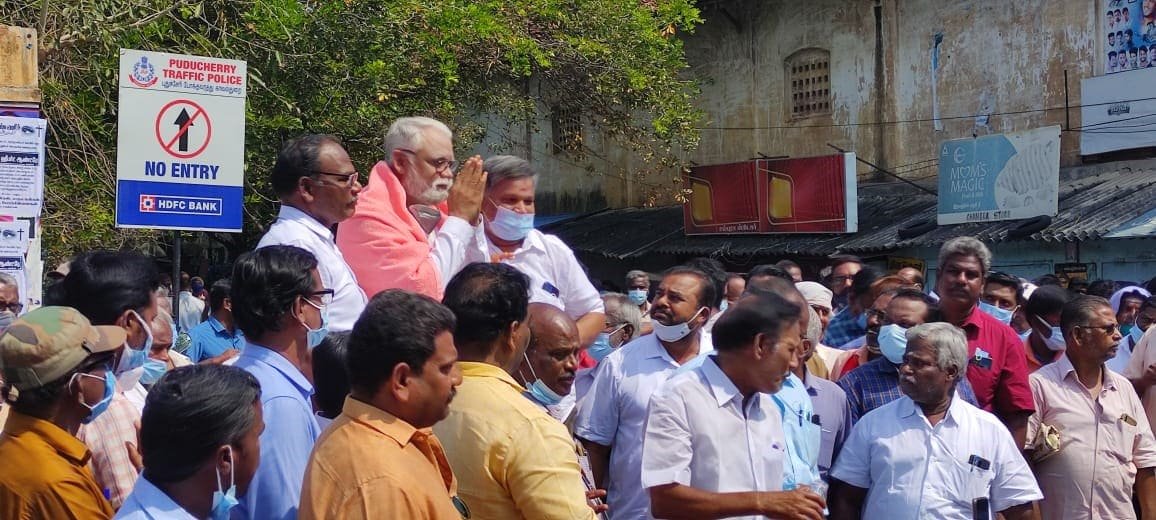Report by a KEC correspondent

As reported earlier on the AIFAP website, the United Forum of Employees and Engineers of Puducherry had resolved to go on an indefinite strike from 1st February 2022 to oppose privatisation. Under the leadership of the National Coordination Committee of Electricity Employees and Engineers (NCCOEEE), various federations and unions had also supported the United Forum. Likewise, electricity workers form various states and union territories, including Tamil Nadu, Andhra Pradesh, Karnataka, Maharashtra, Chandigarh, Assam, etc. had supported the strike by various means – issuing statements, holding meetings and demonstrations, and even actually going to Puducherry to stand in support. The tremendous fight of the Puducherry workers and the unflinching support by lakhs of electricity workers and people had forced the government to relent and promise that it would not go ahead with its decision.
Knowing that the government is perfectly capable of reversing its declared decision to not go ahead with privatisation, Er. D. Taniguevelane, General Secretary, Graduate Engineers Association, Puducherry Electricity Department, had declared on February 3 that the indefinite strike had been temporarily postponed.
Indeed, what was foreseen happened. There are media reports that the government has given clearance for the move, going back on the promise that no further action on privatisation would be taken without consulting employees, the public, political parties and other stakeholders. General Secretary of the Electricity Department Employees Privatisation / Corporatisation Protest Committee, P Velmurugan stated that the work to privatise the power sector is progressing rapidly and that they have chalked out a plan to oppose it. They are well aware that if they allow privatisation their working conditions will be severely affected.
A week after a pen down strike, the engineers and employees of the Puducherry Electricity Department are set to intensify their agitation with a continuous hunger strike from June 8. They will be careful to see that power supply is uninterrupted, to prevent hardships for the people.
An alliance of 15 political parties organised human chains at ten different locations. Those in struggle are educating the people about how they would be adversely affected in various ways if privatisation occurs:
- Exorbitant increases in household electricity bills
- Hike in charges for new connections
- Separate surcharges for electrical appliances
- Scrapping of the 100-unit supply of free electricity to the poor and farmers.
Power engineers and employees of the country, under the leadership of NCCOEEE, have been opposing the central government’s anti-worker, anti-people decision to privatise electricity distribution in all the union territories.
